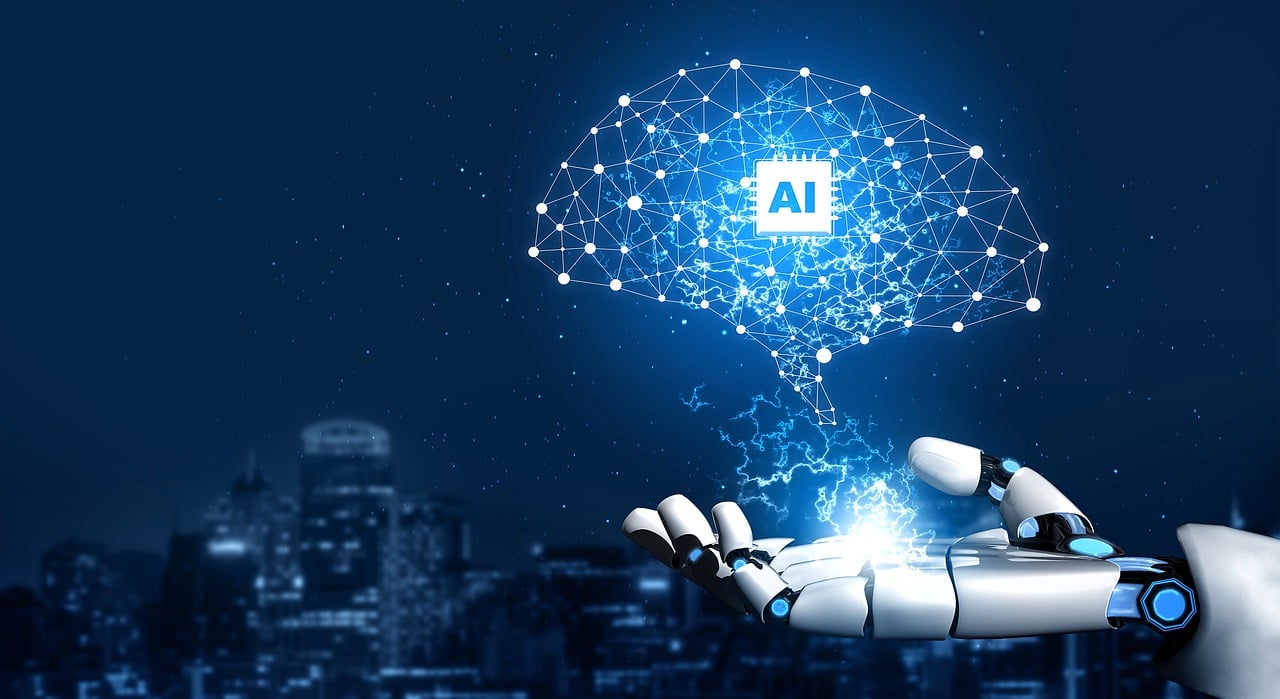Advantages and disadvantages for industry, services and work with artificial intelligence

Artificial intelligence (AI) technologies can increase inequality by displacing some workers in the workforce. There is no shortage of critical issues, but neither are there opportunities. Analysis by Evan Feagans, portfolio manager of TCW 's Global AI Equity team
ChatGPT, when it was released, was the first generative AI product to tap into that space where we normally think humans are best: the creative process. While that's an impressive feat, we don't see it as a breakthrough in itself, but rather the culmination of a technological advance.
To run a large language model or LLM requires a huge amount of technological hardware, computing power, memory, network bandwidth, all of which have come a long way and are now powerful and cheap enough to run them. . Furthermore, a large amount of data is required to train these models to enable them to respond as a human would. The Internet turns out to be an excellent basin. All in all, the potential is huge and it's a topic worth investing in.
The implications for sustainability: the effects on the labor market
Some concerns have been raised that AI technologies could increase inequality by displacing some workers in the workforce. When people think of technological progress they think of machines replacing workers in factories, leaving knowledge-based jobs, such as white-collar jobs, relatively intact.
Conversely, we believe that large language models and generative AI will primarily impact so-called “white-collar workers,” but leave manual trades, such as construction or plumbing, untouched. In fact, it is actually more likely that relatively standardized fields such as law or accounting will be replaced by AI. I think this is an offsetting factor for the inequality argument.
The other point I'd like to make is that Generative AI can help people do the same tasks with less training and less skills. For example, to write code, you don't necessarily need a degree in software engineering but you can ask a great linguistic model what you want the program to do in English, or any other language, and he can produce the code to accomplish that task.
Customer service and autonomous vehicles the most impacted sectors
We believe that to some extent everything will be affected by generative AI. The applications in terms of productivity gains are too broad to exclude any industry. In my opinion, the most obvious area where job losses are expected is in customer service – for chats or phone calls a great language model can usually handle 95% or more of support requests alone, without human intervention.
Another area that has been talked about is that of autonomous vehicles that could replace drivers, such as taxi or truck drivers. For lorry drivers in particular, it must be remembered that this is an area where it has always been difficult to find staff – these are not coveted jobs (just think of the need to be away from home for days on end). So, it might be a boon that AI is doing work that humans aren't too keen on doing.
Legal and regulatory issues: copyright, liability and risk of disinformation
There is no shortage of legal and regulatory critical issues concerning the copyright of both the inputs – the generative AI models are trained on large amounts of data mainly collected from the internet – and the model outputs. Is it possible to obtain copyright on the material produced? This is an interesting point as not all of the material will be written 100% by humans or 100% by generative AI, rather it will be a combination of them.
The third point concerns the responsibility of the outputs. Currently, for example, Facebook is not responsible for what users post online, fortunately for the company. But is a generative AI company responsible for what its model returns in response to a request? This has not yet been resolved in court.
The last point, the fourth, concerns the issue of disinformation. Generative AI models are very good at producing words, videos, audios that appear to come from someone else. Think of the disinformation campaigns that have already occurred on social media.
AI: greater consumption of resources and energy in the short term, but more efficiency in the long term
Generative AI requires a lot of infrastructure, especially semiconductors . Semiconductor manufacturing emits a lot of carbon dioxide emissions, consumes a lot of water, and also requires a lot of energy. From a sustainability standpoint, in the short term it is suboptimal.
However, in the long term, if you think about what can be done with those models, AI works really well in optimizing efficiency and improving resource management especially in sectors like agriculture, transportation and power. For example, in agriculture, some companies are developing smart weed control products using AIs that target only weeds with herbicides, rather than spraying them all over the field. A lot less herbicide is used, which means crops and groundwater are less exposed, maintaining or even increasing production.
Faced with concerns about computer technology actually becoming smarter than humans, I think AI will turn out to be like other technologies, i.e. a set of tools aimed at making our lives better, doing tasks better than we can Do it yourself. From a sustainability perspective, I think AI presents a huge opportunity, especially to manage resources more efficiently. It can really help reduce our environmental footprint, without sacrificing too much output and quality of life for humans. I think it is an important step in our journey towards a more sustainable future.
This is a machine translation from Italian language of a post published on Start Magazine at the URL https://www.startmag.it/innovazione/ia-sostenibilita/ on Sun, 06 Aug 2023 05:31:13 +0000.
